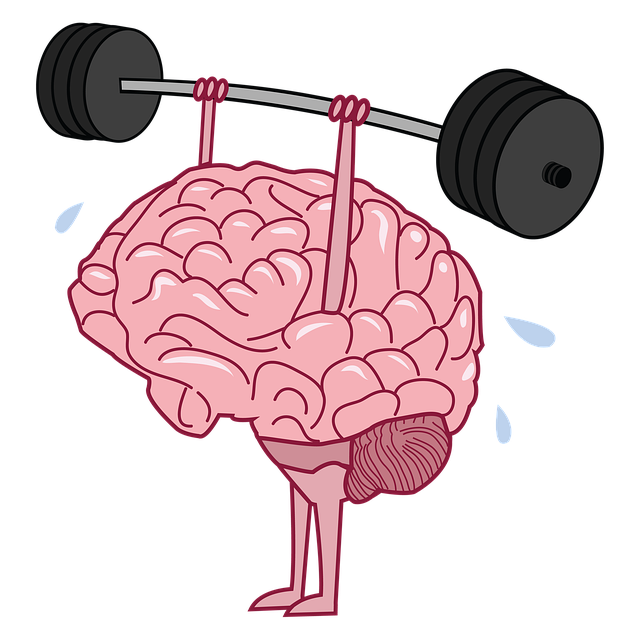Westminster Family Counseling Therapy highlights that emotional intelligence (EI) is paramount for building strong connections and promoting well-being. Through self-awareness and empathy, individuals can enhance personal relationships, communication, and manage stress, preventing depression. Culturally sensitive practices benefit from EI, fostering inclusive environments. The therapy teaches tools like recognizing feelings, challenging negative thoughts, and cultivating self-awareness, crucial for personal growth and risk management in mental health professions. Active listening and empathetic expression deepen connections, reducing mental illness stigma.
Emotional intelligence (EQ) is a cornerstone of personal growth and healthy relationships, as highlighted by Westminster Family Counseling Therapy. This article delves into three key aspects of EQ development: understanding emotional intelligence, identifying and managing emotions, and enhancing empathy and social skills. By exploring these areas, individuals can cultivate stronger connections, improve communication, and navigate relationships with greater ease, all backed by the expertise of Westminster Family Counseling Therapy.
- Understanding Emotional Intelligence: The Foundation of Healthy Relationships
- Identifying and Managing Emotions: Tools for Personal Growth
- Enhancing Empathy and Social Skills: Building Strong Connections
Understanding Emotional Intelligence: The Foundation of Healthy Relationships

Emotional intelligence (EI) is a fundamental aspect of human interaction and relationship building. It involves recognizing, understanding, and managing one’s own emotions, as well as empathizing with others’ feelings. At Westminster Family Counseling Therapy, we believe that fostering EI is crucial for cultivating healthy connections and enhancing overall well-being. By developing emotional intelligence, individuals can better navigate their personal relationships, improve communication, and build stronger bonds.
This process begins with self-awareness—recognizing your own emotions and the impact they have on your thoughts and behaviors. It also entails empathy, which allows you to understand and share the feelings of others, fostering a deeper connection. In the context of depression prevention, EI plays a pivotal role in managing stress and emotional challenges. Additionally, cultural sensitivity in mental healthcare practice is enhanced through EI, as it enables professionals to appreciate and respect diverse emotional expressions, thereby creating inclusive and supportive environments for all clients. Empathy building strategies, when incorporated into daily interactions, can strengthen relationships and promote a more compassionate society.
Identifying and Managing Emotions: Tools for Personal Growth

Identifying and managing emotions is a cornerstone of emotional intelligence building, and it’s here that Westminster Family Counseling Therapy plays a pivotal role. Through counseling sessions, individuals learn to recognize their feelings and understand their underlying causes. This process involves exploring past experiences, challenging negative thought patterns, and cultivating self-awareness—all essential tools for personal growth. By gaining this insight, people can better navigate relationships, make informed decisions, and enhance overall well-being.
In the context of mental health professionals, effective emotion management is not just a personal skill but also a crucial element in risk management planning. Communication strategies, such as active listening and empathetic expression, are taught to help professionals connect deeply with clients while mitigating potential risks. Moreover, by fostering an environment of understanding and acceptance, these professionals contribute to Mental Illness Stigma Reduction Efforts, creating a supportive space for recovery and growth.
Enhancing Empathy and Social Skills: Building Strong Connections

At Westminster Family Counseling Therapy, we understand that emotional intelligence is a cornerstone for building strong connections and fostering meaningful relationships. Enhancing empathy is a key component of this process. By practicing active listening and putting ourselves in others’ shoes, we can better comprehend their feelings and experiences. This, in turn, strengthens our social skills, enabling us to interact with grace and understanding.
Social interactions become more than just exchanges of words; they transform into opportunities for genuine connection. Whether it’s through mindful conversations, empathetic responses, or supportive actions, developing these skills allows us to create deep and lasting bonds. This enhanced empathy and social proficiency not only enrich our personal relationships but also positively impact various aspects of life, including work and community interactions.
Emotional intelligence is a powerful tool for personal growth and building healthy relationships, as demonstrated by Westminster Family Counseling Therapy. By understanding emotions, identifying and managing them effectively, and enhancing empathy, individuals can foster stronger connections with others. These skills are not only beneficial in personal life but also play a crucial role in professional success, creating a more harmonious society. Investing time in emotional intelligence is an ongoing journey that offers long-lasting benefits for all aspects of life.












